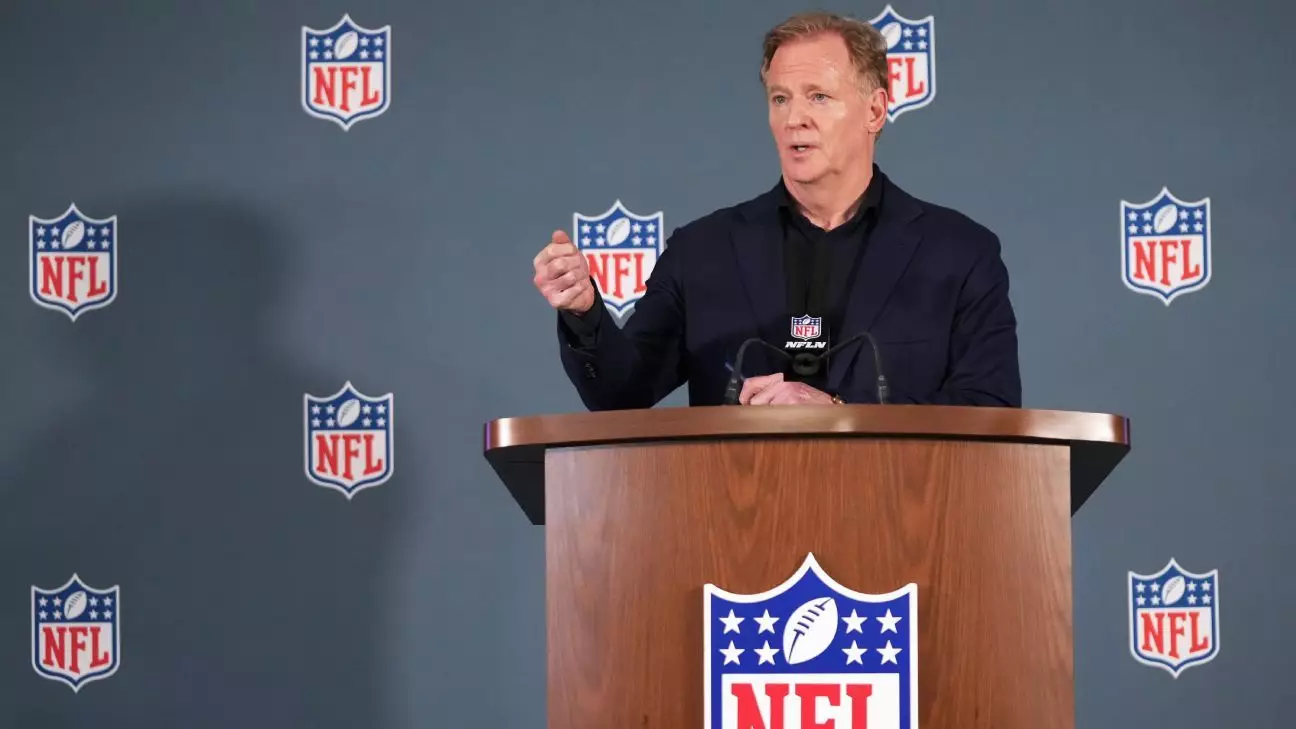The possibility of NFL players taking part in flag football at the 2028 Los Angeles Olympics suggests a remarkable intersection between traditional sports and global recognition. NFL Commissioner Roger Goodell recently noted that participation in the Olympics has gained traction among players. The very prospect underscores a significant shift in how American football is perceived worldwide. As the league actively supports its inclusion, it signals a desire not just to expand the game but also to embrace international camaraderie.
Flag football, with its non-contact approach, offers a platform where athletes can represent their countries while mitigating the injury risks associated with tackle football. Players have openly expressed their eagerness to represent their national identities, whether it be the United States or their countries of origin. This emotional appeal could foster a new kind of spirit within the NFL, as players not only strive for Super Bowl glory but also for Olympic medals, uniting under a global banner.
Navigating Logistical Hurdles
However, this newfound excitement comes with a slew of logistical challenges. Goodell pointed out that the NFL is in the process of addressing concerns about player welfare and potential scheduling conflicts. The Olympic Games, set for July 14-30, 2028, coincide with the NFL’s training camps, making player participation tricky. Striking a balance between allowing elite athletes to represent their countries on such a prestigious platform and ensuring the success of their respective NFL teams will require intricate negotiations and planning.
The ongoing conversations between the NFL, team owners, and player unions highlight the complexities involved. While flag football may appear to be a straightforward addition to the Olympic lineup, the implications ripple through the entire framework of the league. Questions surrounding player contracts, insurance policies, and training schedules need urgency and clarity. The challenge lies in finding solutions that satisfy everyone involved without compromising player health or team performance.
Diversity and Inclusion in Focus
At the same time, Goodell has faced scrutiny over the NFL’s commitment to diversity, equity, and inclusion. In an era where societal pressures to enhance representation have intensified, the NFL has made significant strides, yet much remains to be done. Goodell’s assurance of an unwavering commitment to developing diverse talent may ring hollow to some, especially given the current landscape showcasing a lack of Black offensive coordinators in the league. His assertion that diversity inherently makes the NFL stronger is a valid sentiment, but it raises the question of execution versus ideology.
The Rooney Rule, designed to prompt teams to interview underrepresented candidates for various positions, remains a hotly debated topic. While some individual team owners have voiced their support, the challenge lies in ensuring that these measures translate into real opportunities rather than mere formalities. Goodell’s acknowledgment of limited opportunities amidst a wealth of talent suggests that change will not come easily. Diversity is more than a statistical quota; it’s about fostering an inclusive environment that empowers all voices within the league.
A Challenge on Multiple Fronts
On a separate yet significant note, the NFL is also grappling with serious off-field issues, exemplified by the ongoing investigation into Justin Tucker of the Baltimore Ravens. The allegations against him raise questions about accountability and the league’s response to such behavior. As the NFL struggles to balance its public image with the realities of individual behavior, it shines a light on the need for robust mechanisms to address allegations thoroughly and transparently.
This situation is a glaring test for Goodell’s leadership, showcasing the need for a proactive approach rather than reactive measures. Ensuring player welfare off the field is just as crucial as ensuring their performance on the field. The dual challenges of promoting a positive image amidst allegations of misconduct and fostering a truly inclusive environment highlight the NFL’s dual commitments to player safety and social responsibility.
The advent of NFL players participating in flag football at the Olympics signifies more than just an addition to the schedule; it represents a potential turning point for the league in its global outreach and internal transformations. However, the hurdles presented, from player welfare to systemic representation issues, require concerted efforts, strategic planning, and an unyielding commitment to inclusivity and integrity. The outcomes of these initiatives will undoubtedly shape the future of not only the NFL but also the broader landscape of American football worldwide.

